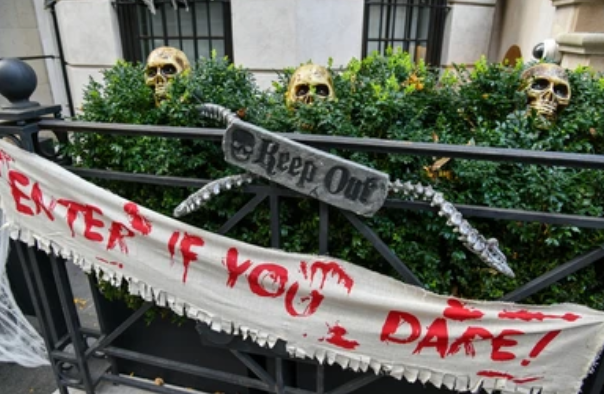Who Is Liable for Accidents and Injuries at Halloween Events?
The Hampton Roads area has numerous haunted houses and Halloween events that draw in both children and adults seeking thrills and chills. While these experiences are designed to induce fear and excitement, safety should always be a top priority. Understanding liability for injuries in haunted houses or events involves examining the responsibilities and potential negligence of various parties, including property owners, employees, participants, and third parties. For more detailed information about your situation, contact our firm to speak with a Virginia personal injury lawyer.
Property Owners and Premises Liability
Property owners of haunted houses or event venues have a legal obligation to maintain a safe environment for their visitors. This obligation is grounded in premises liability laws, which stipulate that business and property owners are responsible for injuries caused by dangerous conditions on their business premises.
Property and business owners should conduct routine maintenance and inspections to identify and address potential hazards. They should also properly display warning signs and provide clear instructions to visitors regarding potential dangers and appropriate behavior within the haunted premises.
Employee and Actor Responsibility
Haunted houses often employ actors and staff to enhance the frightening experience. Liability may arise if an employee’s or actor’s actions cause harm to a visitor. Employers should ensure all employees and actors are adequately trained to perform their roles without posing a risk to visitors. There should also be clear guidelines set for employee conduct to ensure a safe and enjoyable experience for all participants.
Participant Consent and Assumption of Risk
Participants willingly choose to enter haunted houses or attend Halloween events, acknowledging the inherent risks associated with these activities. In some cases, participants may sign waivers or agree to specific terms before entering.
However, as a Virginia personal injury lawyer can explain, there is often a limitation to these waivers. While waivers and consent forms may attempt to limit liability for personal injuries, their enforceability can vary based on the circumstances of the accident. Negligence or intentional harm cannot be waived in Virginia, no matter what the written release or waiver states.
It is critical that business owners ensure participants are fully informed about the potential risks involved, especially those inherent to haunted houses before they enter.
Negligence of Third Parties
Liability may extend to third parties, such as equipment providers or maintenance contractors, if a visitor is injured due to faulty equipment or negligent maintenance. In these cases, the injured party may seek compensation from the responsible third party through a personal injury claim, separate from the business or property owner.
Pursuing Legal Action
Haunted houses and Halloween should provide an exhilarating and spooky experience while prioritizing safety. Determining liability for personal injuries involves a comprehensive examination of premises and business owner liability, employee conduct, participant consent, third-party negligence, parental responsibility, and visitor actions. To enhance safety and mitigate liability risks, property owners should focus on regular maintenance, staff training, clear warnings, and informed consent procedures.
If you or a loved one has been injured in an accident at a Halloween event or attraction, it is important to speak with a Virginia personal injury lawyer who fully understands Virginia’s premises liability laws. Contact Shapiro, Washburn & Sharp to schedule a free case evaluation and find out what legal recourse you may have for obtaining financial compensation for the losses you have suffered. Our firm has extensive experience in premises liability cases, such as the recent $442,000 premises liability jury verdict we obtained for one client who suffered a complex fracture to her right ankle when she fell into a five-foot sinkhole at a Williamsburg, VA golf course.
